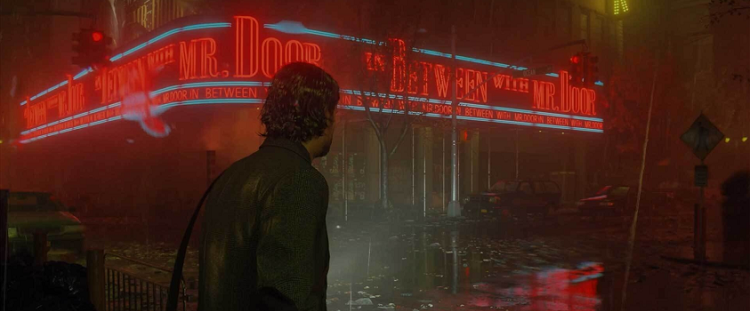
Epic Games
GAME
Alan Wake 2 review - incredible style, overbearing writing
It's been thirteen years since best-selling author Alan got trapped in a creepy lake that isn't a lake. Arriving in Bright Falls are FBI agent Saga Anderson and her partner Alex Casey, who hates sharing a name with Alan's famous fictional detective. This is a role played by Remedy's creative director and game writer Sam Lake, a constant presence to underline the fact that autofiction is the backbone of the Alan Wake narrative. The feds are investigating a series of strange murders that seem to be related to the missing Alan, who ends up reaching out to Saga from his otherworldly jail. Gameplay switches between Alan and Saga as they explore Bright Falls and its surroundings as well as The Dark Place; Alan reworks story drafts in his Writing Room to reshape his prison, and the suspiciously intuitive Saga uses her "Mind Place" - her version of a mind palace - to organise her thoughts, analyse clues, and make deductions.
At its core, the Alan Wake 2 experience is like driving home in heavy rain as an adult and receiving calls from your mother every minute saying "be careful, the roads are wet!" while the car, the LED road warning signs, and your eyes all tell you the same thing. It is an exquisitely produced, gorgeously visualised, lovingly acted, remorseless onslaught of self-awareness and overt signposting to show the player exactly how stories are told, who tells them, and the limitations of genre; in horror, as Alan will remind you many, many, many times, there are only monsters and victims, and the ending must fit the genre. Nobody plays an Alan Wake game for nuance - laughing along with the tropes is part of the fun - but nobody wants to have someone whispering the whole movie into their ear at the cinema, even as a bit. "I can't believe I'm awake," Alan says in the final chapter without even needing to smile and wink at the camera. It's all an extension of the same themes as the first game - a pastiche of familiar devices, conventions, and self-aware metatextual references that shine a spotlight (pun intended) on the trials and tribulations of staying in control of your own narrative.

Epic Games
Where Alan Wake 2 is great is in its excellent synthesis of the original game concept with Control's incredible art direction and style; this sequel is undoubtedly a vast improvement. It's general knowledge that Alan Wake and Control share the same universe - they're bound together by a web of concepts and characters and objects that appear throughout all the games in various forms. There's a neat parallel between the importance of structure and cohesion in writing (Alan Wake), and the importance of organisation and taxonomy in a byzantine reality-defining institution (The Bureau's Oldest House). Both are concerned with moulding reality, whether that reality is fact or fiction, and when Alan Wake 2 leans into this overlap to examine fiction-making within the framework of Bureau research, it feels like we're going somewhere new and exciting.